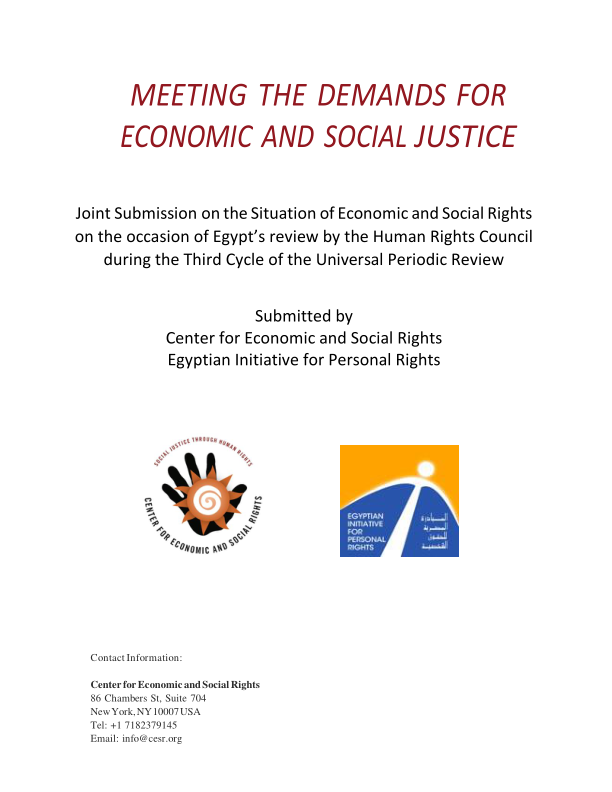Submission in pdf format available here
This joint submission from CESR and the Egyptian Initiative for Personal Rights (EIPR) on the occasion of Egypt’s review by the Human Rights Council during the Third Cycle of the Universal Periodic Review outlines key concerns and recommendations regarding the status of economic and social rights in Egypt.
Fiscal austerity in Egypt has entrenched and worsened existing patterns of poverty, inequality and exclusion, while slackening the realization of economic, social and cultural rights, particularly for the poorest and most marginalized. These developments are taking place alongside a crackdown on civil and political freedoms which has been described as one of the worst in modern Egyptian history.
In this troubling environment, this report hopes to provide a holistic and evidence-based assessment of the status of economic and social rights in Egypt. The data and analysis it includes are based on the Egypt Social Progress Indicators (ESPI), a unique set of multidimensional, quantitative and qualitative indicators that measure progress on economic and social rights in Egypt across six topics: economic policy; labor; urbanization; food, water, and agricultural land; education; and health. ESPI also incorporates a gender analysis across all topics.
- Review fiscal policy with a view to increasing revenue through more progressive means and advancing a more equitable distribution of resources
- Strengthen rights-centered efforts to eradicate poverty and realize the right to an adequate standard of living
- Take measures to ensure realization of the right to work and ensure just and favorable working conditions
- Protect labor rights and abstain from interference in workers’ freedom of association
- Take budgetary and other measures to improve the accessibility, availability, and quality of public health and education services
- Ensure that independent civil society organizations and other stakeholders can participate freely and without fear of harassment or reprisal in economic and social policymaking
